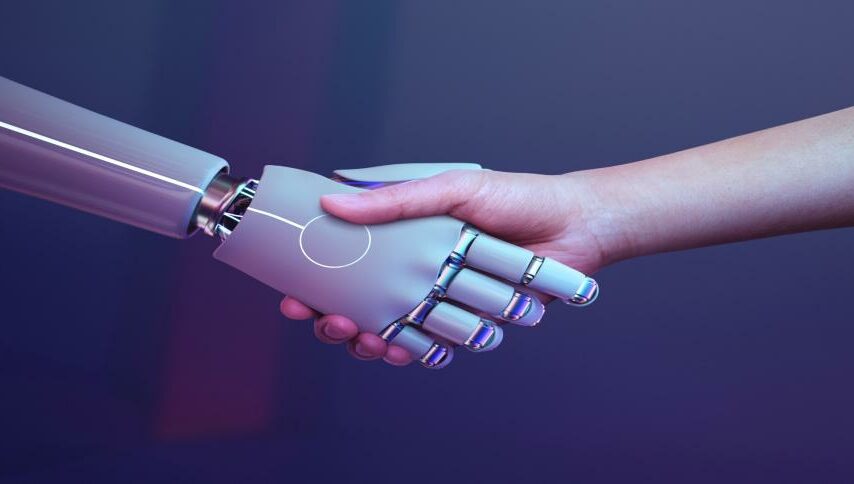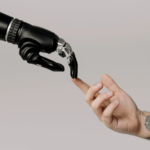Artificial intelligence (A.I.) has been growing in predominance since its inception in the 1950s. We’ve seen various practical applications for A.I. technology emersion, first with machine learning and deep learning, now recently with generative A.I. systems like OpenAI’s ChatGPT- the first-public adoption tool that poised a higher-level revolution in many ways the corporate functions. These include product, project management, target advertisement, and content documentation. Notably, in the recruiting functions – instead of replacing the human workforce like task and H.R. managers, it has optimized the hiring process from candidate outreach to recruitment automation.
If you’re a hiring professional or entrepreneur who feels that A.I. is unfamiliar or difficult to grasp, let’s take a higher-level look at how A.I. is ushering the hiring market and what your move should be with this for your fledging business.
A.I. in Hiring Process – A Business Outlook
AI is starting to usher in a new era for work. When looking at adopting A.I. in the hiring process, do businesses really need to adopt it? Notably, Yes.
In fact, nearly 73% of US C-suit executives agree that they use or plan to incorporate A.I. in their hiring processes
- As AI will replace basic task in screening and recruiting while freeing up recruiters their time to do some fiscal functions that cannot be automated.
- AI is completely capable of handling tasks for you, such as summarizing candidature lists or follow-up email chains.
- AI can assist in with producing content, that require a lot of creativity and problem-solving resulting in enhancing your productivity.
Intriguing Use Cases on A.I. in Hiring
There are myriad intriguing use cases of artificial intelligence in hiring, but most adopt Machine learning and generative A.I. to explicit their recruitment and sourcing. For example, Unilever has reviewed 250,000 applications using A.I. and has reduced its hiring process to 4 weeks from 4 months – saving 50,000 hours of labor globally.
Machine Learning
Machine learning and its generative features help analyze large volumes of data sets with predictive analysis – most notably during the initial screening- they examine historical recruiting data, identify trends, and subsequently estimates the insights in most efficient ways for moving the best talent forward in the duct.
Generative AI
Large language models (LLM) like OpenAI’s GPT-3.5 and GPT-4, powered by ChatGPT, are a type of generative A.I. – that plays a prevalent role in preparing job descriptions, screening, interview scheduling, factual accuracy, etc., or even creating connections with humanlike way by speeding up repetitive tasks.
Applications of AI in Recruitment
- Preparing Job Descriptions
Writing job descriptions for several requisitions is a time-consuming task. With its natural language processing and generative features, A.I. powered writing tools like ChatGPT might alleviate some of the effort. For instance, ChatGPT are incorporated with basic familiarity in preparing content for job description helps you in finding qualified candidates more quickly.
- Candidate Screening
Generative AI helps recruiters save time and focus on the more strategic part of hiring process- like appreciate conversing with and forming connections with candidates especially in hiring remote employees. Example, AI-assisted messaging (Chatbots) to recruiter can assist with the first draft of personalized messages to candidates, which can be adjusted based on region, talents, and workplace type leading to better hiring decisions.
- Interview Scheduling
When applied appropriately, artificial intelligence can be a personal assistant for recruiters. Using scheduling software/ talent cloud platform, you can guarantee that tasks are completed, such as automating talks about particular hiring or job-related inquiries so that candidates may get the answers they need whenever they choose. This lessens your requirement to answer messages or calls while maintaining the candidate’s experience level.
Benefits of AI-Based recruiting approach
A.I. makes companies more agile and productive, especially after the post-pandemic era. Companies that can foresee their hiring needs and develop candidates well with fewer A.I. tools experience less financial loss in the long run. Here are some critical benefits of nurturing AI-based- recruiting approach
- Data-driven system of Recommendation
- Retains top talent and helps in on-boarding & engagement.
- AI-powered outbound advertising
- Better Job Searching
- Lower Cost Savings
Controversies of A.I. in Hiring
Even though artificial intelligence in hiring poses many benefits, it also has some potential challenges. For instance, when it comes to hiring, Chatbots and other A.I. platforms might display pre-programmed biases that might result in unfair hiring procedures. In other words, some candidates can be turned down based on their gender, race, or other characteristics without the recruiter even being aware.
Other challenges when it comes to emphasizing A.I. in hiring –
- Data Quality and Accessibility
- Bias and Discrimination
- Training A.I. model
- Security Threat Or Cyber Attacks
Strategies For Better Hiring With AI
- Expanding training data: Increase the quantity and variety of data used to train A.I., resulting in broader knowledge and improved performance on various tasks.
- Transfer Knowledge: Use models that have already been trained using extensive datasets, modifying them for particular applications and saving time and money by minimizing the search for based A.I. solutions.
- Outsourcing Expert: Use the wisdom of the outsourcing professional talent partner or hire remote freelancers who can act as an integral part of your A.I. initiatives.
AI and Recruiting – A Collaborative Future
Human intelligence cannot ever be replaced by automation. But there’s no denying that the accuracy and skill it offers to the operation are unparalleled. Navigating this ever-evolving technology to reach recruiting goals demands a deliberate approach corresponding to your organization’s needs and ambitions. As A.I. programs themselves are value-neutral, but their application is not. Businesses must be aware of how and where artificial intelligence is employed because improper or immoral use of the technology in hiring can put their company, an industry, or a whole economy at risk for significant legal and security issues, not to mention negatively impacting employee morale and use these tools at your disposal for maximum success.








